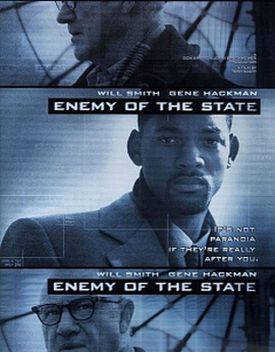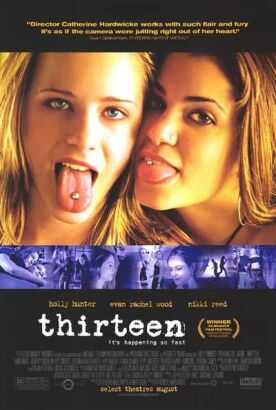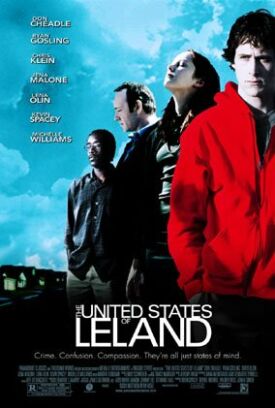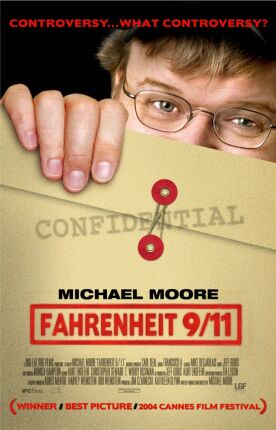Enemy of the State
I expected Enemy of the State, directed by Tony Scott, to be one more document in the tedious succession of conspiracy-theory movies that has pretty much dominated Hollywood’s view of politics since the 1970s. It is that, certainly. Once again, a rogue official of the government controls a vast army of sinister intent and apparently unlimited capacity for mischief. The mystery of this evil genius’s all-encompassing power and intelligence-gathering capability is exceeded only by that of its apparent invisibility to all the normal law-enforcement mechanisms that it so effortlessly supersedes. Car chases, shoot-outs, exploding buildings all seem to happen without the police or any legally-constituted authority’s even seeming to notice them. The rogue agency might just be the government itself!
In other words, conceptually this film is as silly and unconvincing as Conspiracy Theory or The X-Files or JFK or any of the hundreds of other variations on the same theme. As such it contributes to the general propaganda function that Hollywood has taken upon itself, to make the people irrationally mistrustful of their government (which is not the same thing as being rationally mistrustful, as every well-disciplined people must be). But, give the devil his due, once you get over the disappointment of the idiotic cliché that lies at the very heart of this movie, you’ve got to admit that what it does it does very well. This is a fairly tautly-constructed thriller that will keep you on the edge of your seat and therefore is (just about) worth seeing.
Will Smith plays Robert Dean, a labor lawyer in Washington, D.C., who is inadvertently made a confidant of an acquaintance who has evidence of the murder of a prominent congressman, played by Jason Robards, by a National Security Agency official, Thomas Reynolds (Jon Voight). Reynolds is lobbying the congressman for passage of a bill, on grounds of national security, to allow a vastly enlarged power to the government to spy on its citizens. Not only will he not take no for an answer (hence the death of Mr Robards’s character) but he has already taken the liberty of setting up the super-high-tech surveillance and security operation that he seeks to have made retrospectively legal. When he finds that the witness with a video tape inculpating himself in the congressman’s murder may have slipped it into Dean’s shopping bag, he announces to his henchmen: “Let’s get into his life.”
These are chilling words, and the film really does a very good job of demonstrating the paradigmatic horror they hold for modern man. They are like that other phrase repeated here more than once: “He has nowhere to go.” At times “nowhere to go” is literal, a triumphant cry by Dean’s pursuers when they think they have him cornered on two separate occasions. At times it has a broader meaning, for it is also a function of being robbed of one’s identity. “Everything’s gone,” laments Dean, on the run. “Wife, job, bank accounts, credit cards. . .” But later he gets sweet revenge through the skills of the brilliant Mr Brill (Gene Hackman), the inevitable ex NSA agent who knows all the agency’s tricks, and is able to pay Reynolds back in kind, give him a taste of the panic when he knows he is being watched, and that his credit cards have been refused.
The movie also makes the very interesting point that such persecution as the NSA metes out to those who stand in its way depends on the ease with which any individual can be cut out of the anonymous herd. Thus the only strategy for saving one’s live is to overcome our natural, socialized reluctance to make a scene—and Dean makes several, once apologizing as he does so by saying, “Normally I wouldn’t do this.” Then he disrobes and throws his trousers out the window to throw off his trackers. Or he starts a fire. Or he stops an ambulance in which he is a passenger and runs down the street naked.
But we must simply take on trust the works of Brilliant Brill, as of the NSA, his former employer and nemesis. All the high-tech stuff in the movie—and, boy, is there a lot of it—is merely stipulated. Every machine dreamed up to create “the surveillance society” works as planned, though we are given no idea of why or how it works. Much of this movie is like the black boxes you get in modern appliances—no user-serviceable parts. Back in the old days, a movie, like a Model T Ford, invited you to take it apart, inspect its mechanism for yourself, and put it back together again. One feels the loss of those days. On the other hand, the dénouement is nicely engineered and open for our inspection.
Discover more from James Bowman
Subscribe to get the latest posts to your email.






